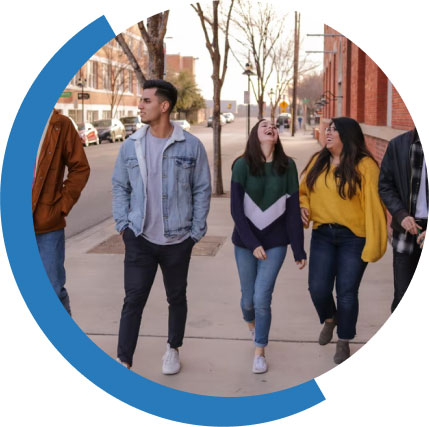Research lines
Research line 1
Labor and educational trajectories, emphasis on excluded groups: women and people with disabilities
We study the determinants of labor participation and employment of women and people with disabilities. In the first case, the focus is on the effect of child care. In the second, we analyze descriptively the labor trajectories of people with disabilities with administrative and survey data. We will also study the impact of the labor inclusion law.
Researchers:
- Claudia Martínez
- Tomás Rau
- Marcela Parada
- Marcela Perticara
- Eduardo Alarcón

Research line 2
Income mobility and its measurement
We study how to analyze intergenerational mobility using not only information on wages, but also other relevant variables such as educational level, social and labor opportunities amongst others. Our focus is to investigate how the modeling itself impacts the conclusions drawn, so we are interested in analyzing the identification problems underlying the different modeling perspectives. In particular, we are interested in analyzing possible causal attributions of mobility, which implies analyzing complex identification problems, which we try to solve using partial identification techniques.
Researchers:
- Ernesto San Martín
- Jorge Gonzalez
- Claudia Martínez
- Tomás Rau
- Marcela Perticara
- Eduardo Alarcón

Research line 3
Psychometrics and the use of technology to measure school improvement
We study how to improve the way we characterize and measure different areas of individual and social development. Measurement results and indicator information in areas such as education, health and social development are used as raw material for our studies and as inputs for public policy decision making, so it is essential to examine their theoretical and methodological underpinnings. With this in mind, our team studies measurement instruments and social indicators, in traditional and new digital formats, to assess the validity, accuracy and fairness of the inferences made from them.
Researchers:
- Jorge González
- David Torres
- Ernesto San Martín
- Eduardo Alarcón

Research line 4
Childhood, care and intergenerational transmission
We study the different factors that affect children’s development (environmental, shocks, public policies, etc.) and how these affect their labor market outcomes and intergenerational mobility. We use survey data such as the Early Childhood Longitudinal Survey but also administrative data in order to better understand children’s outcomes and their transmission to adulthood, especially in the world of work.
Researchers:
- Tomás Rau
- David Torres
- Alejandra Abufhele
- Marcela Parada
- Marcela Perticara

Research line 5
Social mobility and the city
We conduct research on how the city, its transportation and educational systems interact, affecting the social mobility of young people in Chile. In particular, using geo-referenced household data we are able to map how specific public policies have affected them over the years, in some cases, promoting social mobility.
Researchers:
- Kenzo Asahi
- Francisco Meneses
- Andrea Herrera

